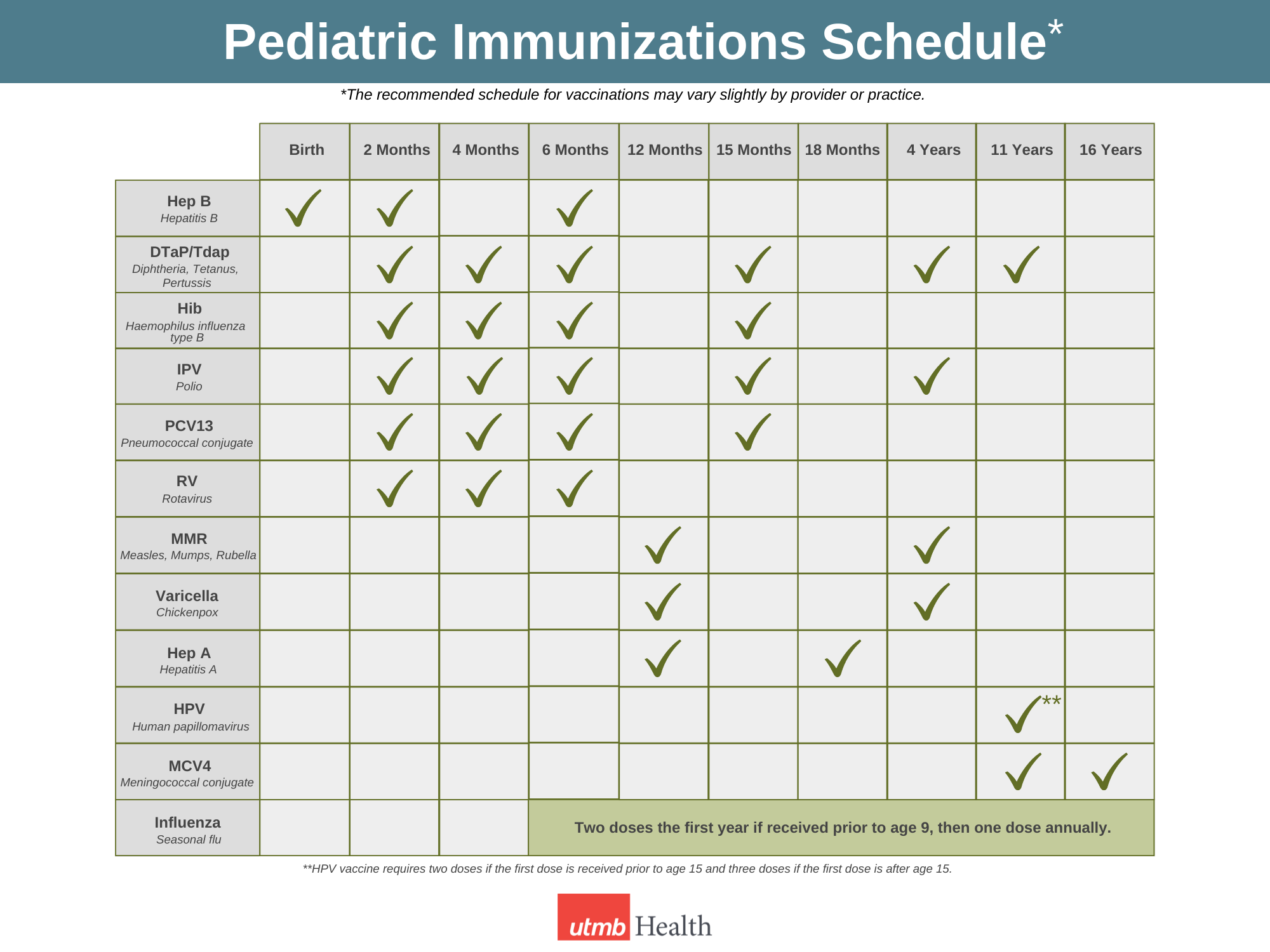Not only has COVID-19 disrupted our daily lives and the way we work, learn and play, it has also disrupted routine medical care, including childhood vaccinations. However, these routine immunizations remain essential to avoid vaccine-preventable diseases
and outbreaks.
Vaccines are one of the greatest achievements in modern medicine and public health. They have turned once-common diseases such as polio, measles and pertussis into a thing of the past.
As diseases become rare, you may ask why is it important to still immunize your children?
Immunity protects us from disease. The first time a child is infected with a specific antigen, such as the measles virus, the immune system produces antibodies designed to fight it and the immune system “remembers” that antigen
to protect your child if it ever enters their body again. Similarly, vaccines contain parts of antigens that cause diseases to produce antibodies and create immunity from a disease without having to actually get sick.
Keep immunizing until disease is eradicated. While many diseases are now rare due to routine vaccinations, they aren’t eradicated. Much like a boat with a slow leak, if we throw away the bucket after the boat was dry without completely
“stopping the leak,” water would soon start seeping in. Before we know it, the boat would be filled with water again. Vaccinations are important until a disease is eradicated, and the “leak is stopped” – even if there
are only a few cases of a disease today, if we stopped vaccinating, more and more people would become infected and spread the disease.
Vaccinate to protect the future. We don’t vaccinate just to protect our children, but also our grandchildren and their grandchildren. For example, with smallpox we “stopped the leak” in the boat by eradicating the disease.
Our children don’t have to get smallpox shots anymore because the disease no longer exists. Smallpox is now only a memory, and if we keep vaccinating against other diseases, the same will someday be true for them too.
While vaccines are an incredible scientific invention, keeping track of what shot is due when for your child can be tricky. Being a parent is hard enough, which is why we created a quick and easy immunization reference chart to help keep your kids up
to date.

If your child is due for a routine vaccination, schedule an appointment with your child’s primary care provider. UTMB Health has a team of pediatricians, family medicine physicians and other specialists to meet the changing needs of children, at
all ages.
Learn more or find a UTMB Health Pediatric Primary Care Clinic near you at utmbhealth.com/pediatrics.
Consider downloading one of these helpful resources to track your child's vaccinations through the years.
Vaccine passport
Pasaporte de vacunación
Immunization schedule and tips sourced from UTMB Health’s Department of Pediatrics and Centers for Disease Control and Prevention.